
Reflection by Deborah Beach Giordano
Honeysuckle Lane and Seraphim Avenue
At a conference several years ago I met a man who told me the names of the streets in heaven where his brother and his parents lived, and proudly informed me that his brother played trumpet in the celestial orchestra. Aside from possessing (and sharing) this rather startling intelligence, he had a pleasant demeanor and appeared quite normal and able to fully function within this-worldly strictures.
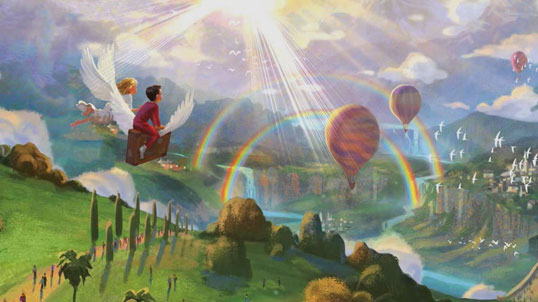
Before we pronounce judgment, condemning the poor fellow as mad or delusional, perhaps we should look at our own beliefs about the afterlife. Most of us, I suspect, harbor somewhat similar ideas — if not, perhaps, such concrete ones. That is, if we think about it at all.
Most of the time we indulge in avoidance, and that’s not surprising. Thinking about death is disturbing, distressing, and depressing. It’s easier and far more pleasant to ignore it, but then every so often the Grim Reaper intrudes into our lives and suddenly we are confronted with the Great and Terrible Mystery: What happens next?
Are our loved ones truly gone, disappeared forever? Or have they, as used to be said, “fallen asleep”; held in a kind of stasis, to awaken again on a far-distant Judgment Day? Or have they moved on, transitioned to another place, another way of being?
What happens next?
It’s a perfectly reasonable question; the most natural question in the world: What happens after we die? What happens to our feelings, our memories, our souls, our essence? Do we — does some aspect of ourselves — live on? If so, how? Where? In what form?
The honest answer is: We do not know for certain. As the author of the Johannine letter states, “What we will become has not yet been revealed.”
In the meantime we have faith, hope, experience… along with, perhaps, doubt, pessimism, and denial, too. The recurrent belief in the “rapture” — or, as I call it, the Great Levitation: the notion that the “chosen” will be lifted up into heaven (clothing optional?) without having to die to get there — is a reflection of the refusal to admit the Unpleasant Truth: all that lives, dies. Even “good Christians.” Everybody: all creatures, great and small. Even ourselves. Yikes. No wonder we don’t like to think about it.
Cultural Thanatology
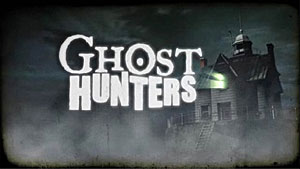 And yet there is, equally, a fascination with the subject; we see it in the many tales of hauntings and seances, vampires and zombies, ghoulies and ghosties … all, in their way, indicative of survival after death — even if in an unpleasant form. Perhaps these are secular variants of El Día de los Muertos: a way to encounter the concept of death in a nonthreatening, somewhat playful, way. Whatever the reason or purpose, despite our denials and dissembling, death is clearly on our minds.
And yet there is, equally, a fascination with the subject; we see it in the many tales of hauntings and seances, vampires and zombies, ghoulies and ghosties … all, in their way, indicative of survival after death — even if in an unpleasant form. Perhaps these are secular variants of El Día de los Muertos: a way to encounter the concept of death in a nonthreatening, somewhat playful, way. Whatever the reason or purpose, despite our denials and dissembling, death is clearly on our minds.
Openly, outwardly, our culture only permits two responses to the subject of death: a kind of stoic agnosticism (“What will be, will be. We’ll find out when we die.”) and grim pessimism (“Death is final. ‘Ashes to ashes,’ we end our lives as compost.”). Any other thinking is discounted as superstitious nonsense or outright stupidity; a refusal to accept that this world is all that there is, all that matters: the Ultimate meaning of life, the universe, and everything.
Of course some of us happen to believe that that sort of thinking is what’s nonsense. However, the world-only attitude is deeply entrenched, and to even consider an “Afterlife” beyond this one is … well, not really acceptable in polite society. It’s a bit embarrassing, unmentionable; something one does in private. And so we end up not discussing it at all.
And that’s tragic; there is no other word for it. We have allowed ourselves to be muzzled — shamed into silence; our curiosity stifled, our questions and investigations suppressed — when we have access to Words and witnesses that can bring encouragement and comfort. There is no need to rely on childhood fantasies or succumb to existential dread. The answers are out there, although “not yet fully revealed.”
But let’s take a moment to acknowledge the one belief in an afterlife that is almost-universally accepted: The Rainbow Bridge.
The Rainbow Bridge
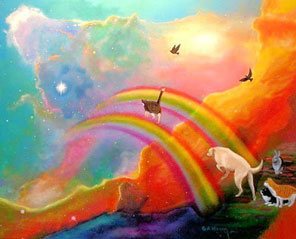 With few — no? — exceptions we engage in imagining that, when their lives here have ended, our beloved pets will be happy, safe, and well “on the other side.” It is the least we can expect: a reward for their lives of love and loyalty; a joyful Eternity. I confess unreservedly and without regrets, it is a belief that I embrace and hope to be true.
With few — no? — exceptions we engage in imagining that, when their lives here have ended, our beloved pets will be happy, safe, and well “on the other side.” It is the least we can expect: a reward for their lives of love and loyalty; a joyful Eternity. I confess unreservedly and without regrets, it is a belief that I embrace and hope to be true.
And, oh yes, please Lord, with us by their sides.
If there are no dogs in Heaven, then when I die I want to go where they went.
~ Will Rogers
I suspect that part of the wide acceptance of the idea of critters in heaven is due to our sense of justice: that loving and kind beings deserve to be there. And, if such a celestial place does exist and we reach it, we want to be with them again. The same cannot be said about all of the people we have known!
According to the Scriptures
The most logical source for information about What Happens Next is, of course, the teachings of our Lord Christ. While Jesus said a great deal about the qualities of the kingdom of heaven, he did not describe the landscape, nor any details about the lives of those who abide there in the afterlife.
What we do know is that the Kingdom is relational: it is built on compassion, on love and loyalty to God and to our neighbors. Those who ask the Lord how they can “inherit” eternal life are told that it is based on righteousness, on kind deeds, honesty, and concern for others, along with faith and dedication to God.
Mocking His belief in eternal life, the skeptical, cynical Sadducees asked the Lord “whose wife,” a hypothetical, much-married woman would be in the resurrection. This gives us some insight into some aspects of the Afterlife:
Jesus answered, “You are mistaken because you do not know the Scriptures or the power of God. In the resurrection, people will neither marry nor be given in marriage. Instead, they will be like the angels in heaven."
~ Matthew 22:29-30, Mark 2:24-25, Luke 20:35-36
“Like the angels,” would seem to indicate individual, recognizable personalities; perhaps even with particular assigned tasks and abilities — as angels are represented in the Holy Scriptures. There is certainly the ability to communicate: angels are communicators, par excellence.
Jesus continues his reply to the doubters by emphasizing God’s power and authority: “He is not God of the dead, but of the living, for to Him all are alive.” God is not foiled by death, does not forget those who have finished their lives here, but remains connected and caring. The Eternal is power without limits, compassion without restraint. God is with us, always.
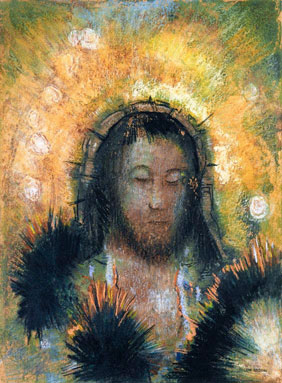 We may also draw some idea of the afterlife from the Lord’s post-Easter appearance to his disciples. As theologian John C. Meier describes the Resurrected Christ: He was recognized by his disciples (after their initial surprise/confusion at His appearance), spoke to them, walked with them, and even shared meals with them. He was wholly present, and wholly Himself.
We may also draw some idea of the afterlife from the Lord’s post-Easter appearance to his disciples. As theologian John C. Meier describes the Resurrected Christ: He was recognized by his disciples (after their initial surprise/confusion at His appearance), spoke to them, walked with them, and even shared meals with them. He was wholly present, and wholly Himself.
It would seem that there is continuity of a sort in the Resurrection: a recognizable self, communication, understanding; joy, and peace. We are alike, yet not identical with our incarnations.
Whatever awaits us, Jesus assured us that we have no reason to be afraid.
Peace I leave with you; my peace I give to you. I do not give to you as the world gives. Do not let your hearts be troubled; do not be afraid. You heard me say, ‘I am going away, and I am coming back to you.’ If you loved me, you would rejoice that I am going to the Father, because the Father is greater than I.
~ John 14:27-28
Reports From the Field
While we do not know for certain What Happens Next, we can speak with authority of those things we know to be true: love never dies; there is beauty and joy inherent in creation; each season speaks of the Promise of renewal; there are more things in heaven and earth than our sciences and philosophies can imagine or explain. We can take comfort in the promises of our Lord, the witnesses of the Gospels, and in the testimonies of holy people and mystics throughout the ages who have been granted a peek behind the veil.
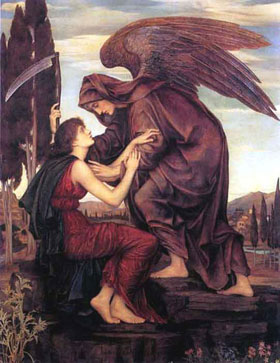
In my own case, I have been present at the passing over of several souls — and I use the term “passing over” advisedly. These were not deaths; not endings, but transformations, changes, continuations. Each, in their very different way, revealed an aspect of God’s attentive care; each was a testament to a radiant, glorious Hereafter.
Without going into details, I can say that I have seen angelic escorts, bright pathways, and watched a soul rise toward the heavens. Yes. Really. I have been present and witnessed partings of the veil; I have glimpsed The Threshold to the Other Side. Perhaps it sounds like madness, but these visions were as clear as any sight of “reality.” As Carl Jung insisted in his autobiography: “I no longer believe: I know! I know!” And so I do.
These experiences helped to form my belief; my calm certainty in God’s love, and in a gentle, joyful eternity. Yet there remain questions about what is just and fair — even while holding absolute faith in divine mercy.
The gospel of Matthew reports Jesus as speaking of “separating the sheep and the goats” (and it doesn’t end well for the goats), and a parable in Luke describes a selfish and uncaring rich man as crying out for relief from the torments of Hades. These indicate that there are consequences to our actions (and inactions): that the hateful and malicious do not get a Free Pass into eternal bliss.
The Good News
We do not know for certain What Happens Next.
And yet we do have the Lord Christ’s assurance of God’s abundant mercy and transforming grace; we have the Easter revelation that physical death is not the end; we have countless generations of witnesses to the Beloved’s faithful love and tender compassion. And we know, as Jesus told the doubting Sadducees, that our God “is not God of the dead, but of the living, for to Him all are alive.”
God’s grace is greater than our sins. All of our sins. God doesn’t make trash, nor scorn or reject what has been created. “To Him, all are alive” — no matter how withered, how damaged, how hopeless our lives may seem, God is with us. Despair is not an option, because there is no cause for despair. It is never too late for God.
I will close with John Wesley’s last (earthly) words: “Best of all is, God is with us.”
May God’s grace and love lift your spirit and fill your heart with joy,
Deborah ✟
Suggested Spiritual Exercise
Pray for all souls in torment.